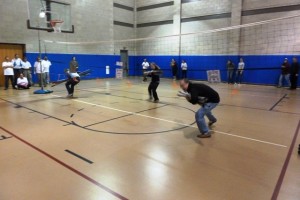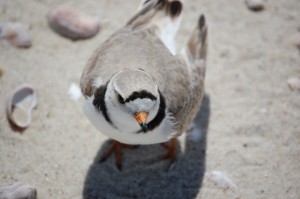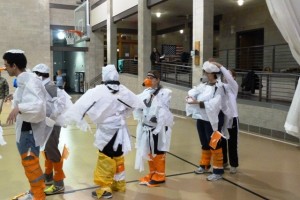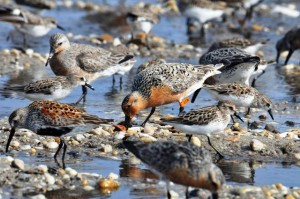With the start of the 2014 coastal waterbird season just weeks away, the folks who labor each summer along the Atlantic coast to protect nesting piping plovers and least terns convened recently in West Virginia to hear the latest news and research about conserving these threatened species.
Wellfleet Bay’s science coordinator Mark Faherty, who attended this year’s Piping Plover and Least Tern Workshop, says there was some positive news in a business that can be pretty discouraging. Massachusetts, he says, exceeded the population targets for all of New England although New York and New Jersey continue to struggle with poor productivity and alterations to the coastline.

The conference had its lighter moments: the symbolic fence-carrying relay, part of the “Plover Winter Olympics”.
New research, he says, may also cause us to revisit our decision not to place exclosures around nests in recent years. “Some intensive statistical modeling of existing exclosed and unexclosed nests indicate that using exclosures is worth it even taking into account increased adult mortality,” Mark reports.
Although climate change may pose a threat to many birds, Mark says plovers and terns may actually fare relatively well, at least for the short term. “The expected increase in severe storms and overwash events tend to create habitat, at least at functional barrier beaches,” Mark notes.
Mark says the biggest headline from the conference wasn’t about plovers or terns at all, but the declining red knot. “Red knots may finally be added to the endangered
species list at the end of this year,” he reports. U.S. Fish and Wildlife biologists are working on designating critical habitat.If you’re interested in joining our coastal waterbird team this spring, please email volunteer coordinator Diane Silverstein.
.




